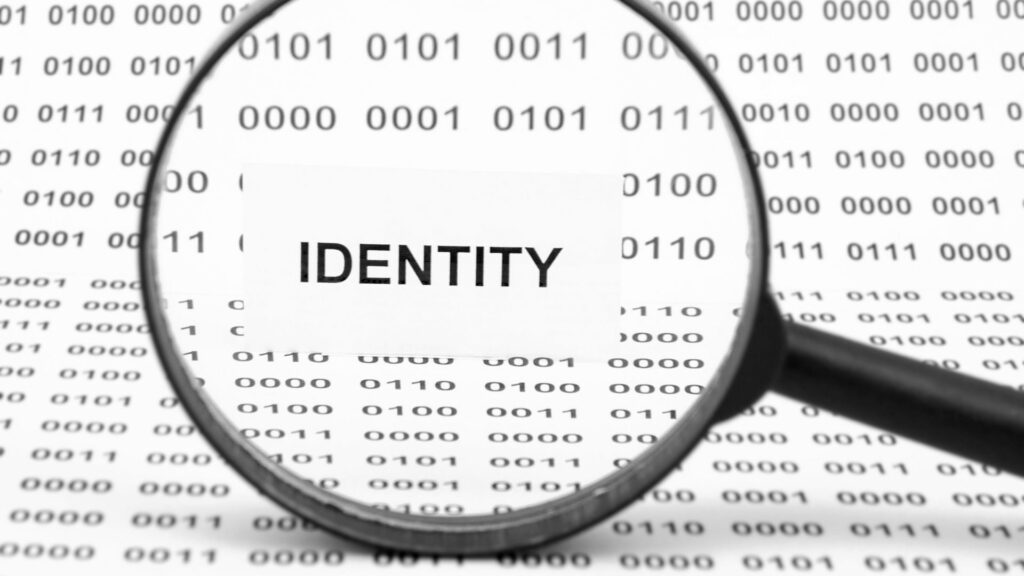This blog post is about identity issues. Who are you? Where do your loyalties lie? What should be the boundaries of your personal space? These are questions that have been debated for centuries and will continue to be debated in the future. In this article, it talks about how we are shaped by society and what we can do to protect ourselves from the bad stuff. It looks at things like what our identity is and how it is made up.
Contents
What are Identity Issues?

Identity issues are problems that people have with their sense of self. A person can ask questions about a person. Questions can be about where someone is from, their family, and what they want to do with their life. These questions can be difficult to answer, and sometimes people feel like they don’t have control over their lives. Is who you are dictated by your family? Can someone be anything they want to be if their parents didn’t encourage it?
How does Identity develop?
People are put into categories when they are born. They are put into categories like race or gender. People think this is what type of person they will become based on these categories. People are also influenced by family members. They see how their parents act and think that is what they should do too because it has always been done in the past.
How can I protect my Identity?
One way that people do this is through the use of technology. Some people use social media and online games to talk to others. This means that the rules for these sites govern how we act. For example, Facebook is a service where people can make an account and share what they want with all their friends. The idea is that it’s easier than having many accounts. Social media can have problems. People might act differently in real life because they are worried about what people think of them on social media.
Symptoms of Identity Issues

There are a few symptoms of identity issues.
- You’re wondering who you are. You might be wondering about your career, or how old you are.
- You are questioning the role you have in society.
- Recently, you might have gone through a divorce. It is hard to know how this has made you feel.
- You are questioning your values, spirituality, beliefs, or interests. They have a big impact on how you see yourself.
- You’re searching for more meaning, reason, or passion in your life.
- You’re trying to find your place and purpose in the world.
- It can be difficult for some people to answer these questions, but not everyone is affected by identity issues.
It’s most common for young adults with their future ahead of them. Sometimes they are searching for a career that gives them meaning or purpose in life. Identity issues usually affect more women than men, though it can happen to anyone at any age. People who have been through a traumatic event might also worry about this issue. Sometimes, a traumatic event can change how we think about ourselves or what we believe about ourselves.
Causes of Identity Crisis
There are many different causes of an identity crisis.
- One common cause is being in a difficult situation where you don’t feel like you have control over your life.
- Another cause can be feeling like you don’t fit in with the people around you, or that your family and cultural background doesn’t match up with what you believe.
- Sometimes people go through an identity crisis when they are going through changes, such as puberty or moving to a new place.
Treatment For An Identity Crisis

- The best way to treat an identity crisis is by talking to a therapist. Therapists can help you understand your feelings and give you tools to deal with them. You might also find it helpful to talk to other people who have gone through the same thing.
- Self-care is also important during this time. Make sure you are eating well, getting enough sleep, and exercising regularly.
Coping With Identity Issues
Coping with identity issues can be difficult. One way to cope is by asking yourself questions that focus on the present and not the past. This means that you should try to see your life from a new perspective or think about who you are now instead of who you were before.
- One common question people ask themselves during this time is “Who am I?” They often think that they will find the answer if they go through their past and figure out who they were before. This is not always effective, though it can be helpful sometimes too!
- Another question people ask themselves during this time is “What do I want?” They wonder what would make them happy now instead of focusing on finding something in particular. It’s important to realize that changes might happen slowly or quickly depending on your situation, but change does come eventually.
- One useful thing you can try doing when deciding how to deal with an identity crisis is asking yourself these questions: What makes me feel good? What are my goals for myself right now? Am I living up to those goals? How am I supporting myself emotionally? Do I have a support system that I can rely on?
- When people are having an identity crisis, they often feel alone. If you have someone to confide in, it might help you figure out how to deal with your feelings and come up with a plan for yourself.
- Another way to cope is by trying not to compare yourself too much with other people or the “perfect” person in your head. A lot of times people get caught up in thinking about what kind of life makes them happy instead of figuring out who they want to be themselves.
There’s no right answer when it comes to these questions, so try looking at things from different angles until something feels more natural! You will eventually find answers if you keep asking yourself hard questions and give yourself time to work through your feelings.
Other Strategies
Exploring your beliefs and interests
Sometimes we feel like we don’t know who we are because our interests and beliefs aren’t consistent. Maybe you’ve always believed that you were a liberal person, but your recent experiences have made it harder for you to hold on to those ideals. It’s important to explore these kinds of questions with yourself to figure out what kind of life will make you happy now.
You could try thinking about the things that interest or inspire you without judging them too much at first! There might be something there that can help guide how you decide what path is best for you right now. This process should feel more natural than forced, so keep trying until something feels good enough!
Exploring activities
Another strategy is finding an activity that you can explore without worrying about your identity. This activity could be something you’ve always wanted to do or something completely new to you. It doesn’t matter what it is as long as you’re interested in it and it makes you happy!
When you’re exploring this activity, try not to overthink things. Just go with the flow and have fun! The more relaxed and open-minded you are, the easier it will be for you to find out more about yourself in the process.
Finding a community
It might also help to find a community of people who share your interests. When we feel like we don’t fit into our communities, it can be difficult to figure out where we belong in life. Joining a community of people who share your passions can help you feel more connected to the world.
It’s also a great way to make friends and meet new people! If you’re not sure where to start, try looking online or in your local area for groups that match what you’re interested in.
There’s no wrong way to go about finding yourself during an identity crisis, but these are some strategies that might help! Just remember to take things slow and be patient with yourself – it takes time to figure out who we are.
Considering your goals
One thing you might want to do during an identity crisis is your goals for yourself. What do you want to achieve in life? Do those goals still feel relevant to you?
It’s okay if your answer is no, but it’s important to think about why that might be the case. Are there other things you take interest in now? Is there something preventing you from achieving your old goals?
Figuring out your answers to these questions can help give you a better idea of who you are and what kind of life you want to lead. It’s not always easy, but it’s worth it in the end!
Identity crises can be difficult and confusing, but they’re also a natural part of growing up. If you give yourself time to figure out who you are, things will eventually feel a lot more natural and become easier over time.
Preventing Identity Issues
You can also try to prevent identity issues from happening by doing things like:
- keeping an open mind about your beliefs and interests, even if they change
- exploring activities that inspire you without judging yourself too much at first
- finding a community of people who share similar passions as you do
- thinking carefully about your goals for yourself and whether they still feel relevant to you.
If you can do these things, it will be easier for you to figure out who you are when difficult times come up. Remember that everyone goes through identity crises at some point in their lives, so don’t worry if you’re feeling lost right now. Just take things one step at a time and don’t be afraid to ask for help if you need it.
Conclusion
The main takeaway of this blog post is that the identity issues people face are not just an individual’s problem. They also affect families, communities, and society at large. We hope you found it informative to learn about some of these common struggles with self-identity. If you’re dealing with any of these challenges yourself or want more information on how to help someone who does, please contact your doctor for a referral to a mental health professional in your area!
If you are looking for affordable Online Counseling MantraCare can help: Book a trial therapy session





